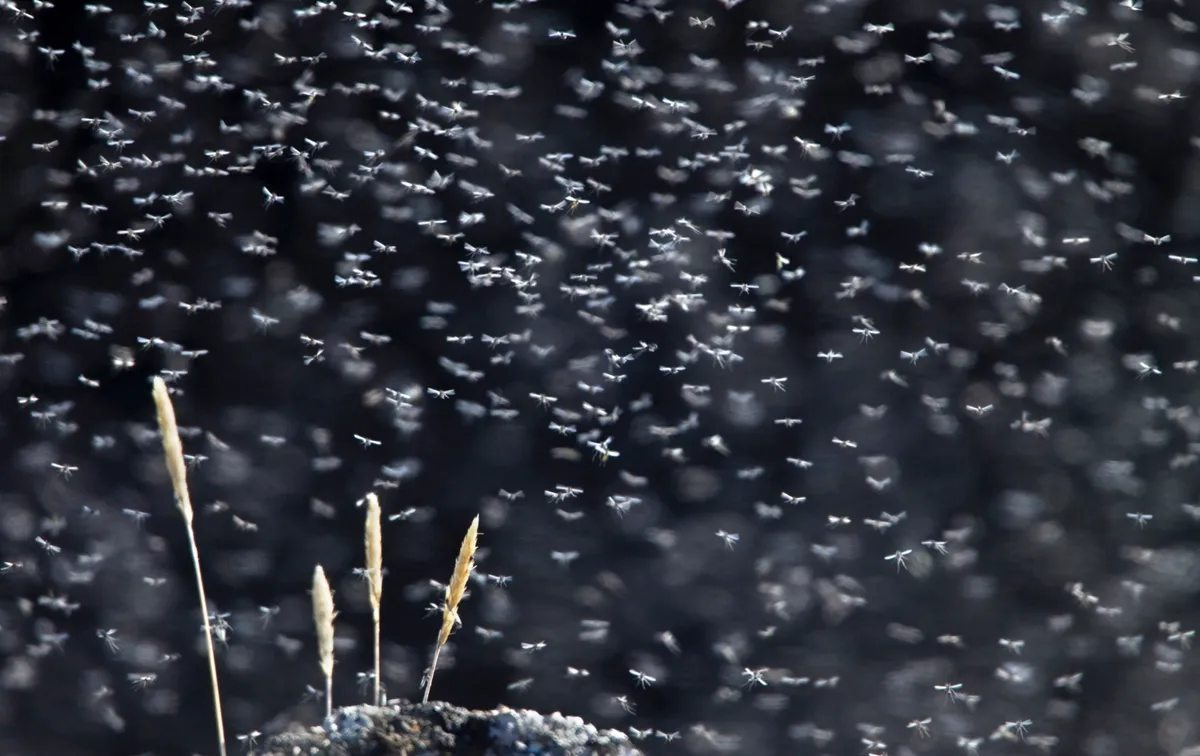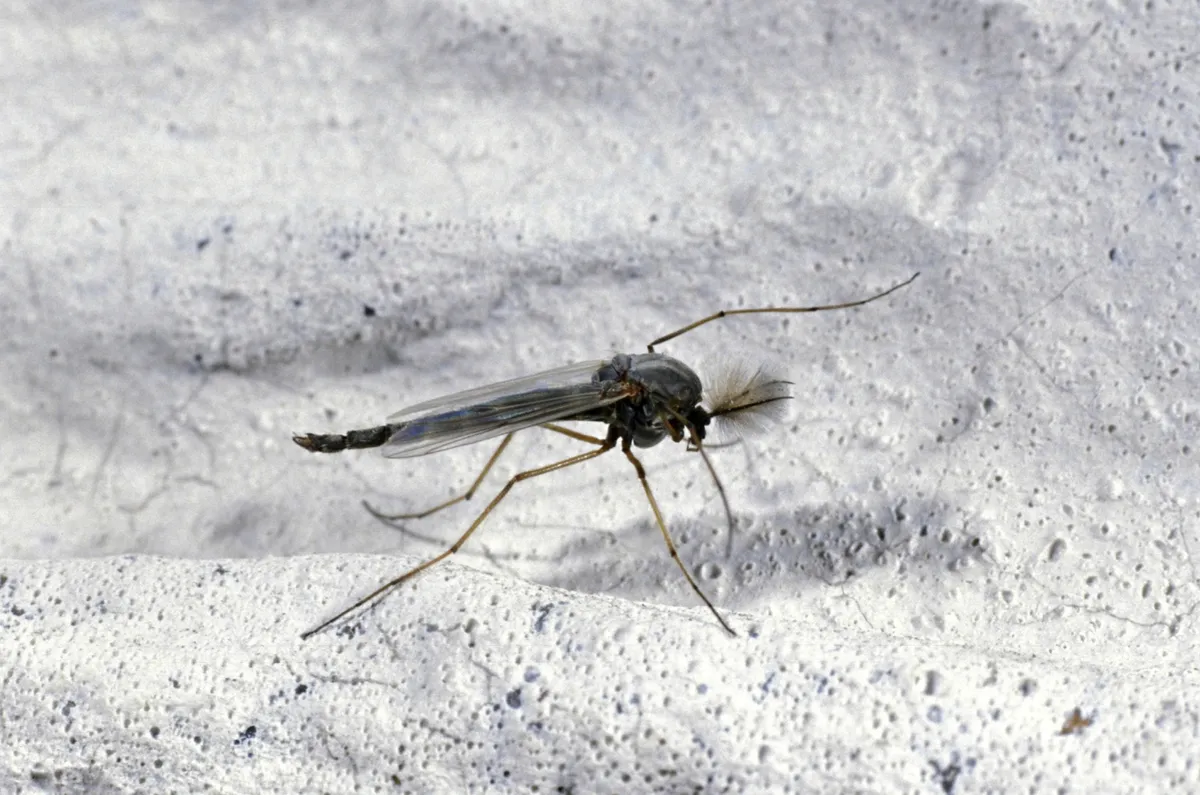Most of us will have experienced the discomfort of being swarmed and bitten by a cloud of midges. It's enough to ruin any holiday, especially if you're wild camping or hiking in near a water source in the summer season.
That said, midges, like all insects are a fascinating species – it's just unfortunate that midge bites can be quite so itchy and sore! Learn more about midges, including when midge season takes place in the UK, how to identify – and most importantly how to avoid being bitten in our expert guide.
What are midges?
Known in Scotland as 'wee beasties' or 'mijees', the midge is a tiny, flying insect with a wing span of just 1-2mm. There are 35 different species of midge.

What time of year do midges come out in the UK?
Midge season tends to take place between mid-May to early September. Midges like warm, damp conditions, such as bogs and grasslands and populations of midges can reach very high numbers between late spring and late summer, and are particularly common in the Scottish Highlands.
What are midges attracted to?
Midges find people by honing in on warmth, body odour and exhaled carbon dioxide. A study by the London School of Hygiene and Tropical Medicine found that midges are more attracted to tall people or those with a large body mass index. The most bloodthirsty species, which is responsible for the most bites in people, is the Highland midge, Culicoides impunctatus.
Midges use their fine-toothed mandibles to saw into skin, and if you get caught in a cloud of midges, it feels like being incessantly stabbed by needles. Midge bites leave itchy swollen lumps that last for hours or days depending on the victim’s sensitivity.
However for other animals, such as livestock, midges are responsible for spreading diseases such as blue tongue and African horse sickness (one of the deadliest horse diseases).
Why are midges important?
It’s not impossible to eradicate midges all together, and we wouldn’t want to: they are food for an army of bats, birds, frogs and fish – supporting an entire ecosystem.

How to protect yourself against midges
- Midges are most active on overcast, humid days, especially at dawn and dusk, though they will appear at night. Choose to explore on dry, clear days, especially if there is a breeze. Midges won’t fly if wind speed is 6mph or above.
- Midges will only seriously attack you when you’re standing still, so don’t worry too much if you’re out walking – they can’t keep up with you as well. Avoid leaving windows and doors open and the lights on, as this will attract the midges into your house.
- Unless you are extremely fortunate with the conditions, you will need either physical barriers or chemical repellents or both to keep the midges at bay. Thick leggings, boots and a quality waterproof jacket are essential. Gaters will also help, as midges find their way through socks and up trouser legs easily. You’ll also need a midge net to cover your head.
- If you’re always a target, wear light coloured clothing: midges are more attracted to dark colours. They also find some people’s body odour and temperature more appealing than others.
- As for chemical repellents, a host of body oils, creams and sprays are available, from DEET to Smidge. Campers often burn candles containing citronella to create a general anti-midge fug around tents.
- Smidge's midge forecast can help those planning to head out in Scotland during midge season. The map of Scotland ranks areas from 1 (negligible levels) to 5 (nuisance levels).
More health advice
- Are you allergic to the sun? If you come out in hives and blisters, you could have this little-known condition. We look at symptoms, causes and treatment
- "While ageing can't be stopped, it can be slowed down," and it might be easier than you think say scientists
- Can I hike with a stoma? Yes, there's no need to let a stoma bag stop you leading a normal life say experts
- What should be in a first aid kit?
- How to prevent and treat blisters


